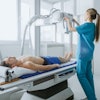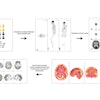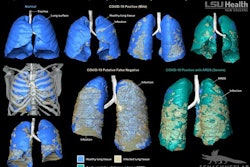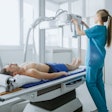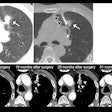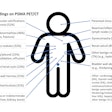Dear AuntMinnie Member,
A PET tracer can help to quickly determine if patients will respond to an investigational prostate cancer treatment, according to our most-viewed story on AuntMinnie.com this week.
After analyzing PET/CT images with the radiotracer F-18 DCFPyL in patients before and after they began bipolar androgen therapy for metastatic castration-resistant prostate cancer, researchers found that new radiotracer-avid lesions can indicate disease progression. They believe that the procedure could fill the need for a new imaging strategy to determine if patients will respond to bipolar androgen therapy.
You can access this and other molecular imaging news in our Molecular Imaging Community.
Flawed AI studies?
Artificial intelligence (AI) software holds great promise as a tool for helping to detect breast cancer. But after reviewing 12 studies published over the last decade, researchers from the U.K. concluded that AI had poor quality and low applicability for breast cancer screening. They found insufficient evidence for AI's accuracy or the clinical effect of introducing AI to examine mammograms anywhere on the screening pathway.
The authors hope that their findings will encourage future users and other decision-makers to press for high-quality evidence on test accuracy when considering integrating AI into breast cancer screening programs.
On the bright side, another story this week described how a deep-learning algorithm could facilitate personalized breast cancer screening protocols for women. Get these stories and more by stopping by our Artificial Intelligence Community
Repurposing DEXA exams
The dual-energy x-ray absorptiometry (DEXA) exams used to screen patients for osteoporosis could also be repurposed to predict diabetes and heart disease in older women, according to another popular story on AuntMinnie.com this week.
Researchers discovered that adiposity measures derived from the DEXA exams outperformed traditional clinical measures for predicting risks for diabetes and atherosclerosis outcomes in a large group of postmenopausal women.
For this and other radiography news, stop by our Digital X-Ray Community.

